Two Bournemouth University students, Matthew Dray and Amelia (Mimi) Simpson have presented their undergraduate research in Parliament last week, to parliamentarians, policy makers and fellow undergraduates at the annual ‘Posters in Parliament’ 2019 event.
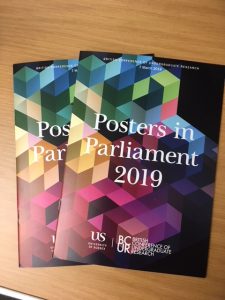
This year’s event was organised by the University of Sussex and showcased more than 50 undergraduate students from around the UK. Now in its sixth year, BU has participated from the start. The annual event is an exhibition to allow MPs and policy makers learn more about the innovative undergraduate research being undertaken in various disciplines by undergraduates from a number of institutions. Other uni’s participating on the day were: Aberdeen, LSE, UCL, King’s College London, Newcastle, Nottingham Trent, Exeter, Plymouth, Sheffield, Reading and Portsmouth, etc.
Matthew Dray, a BSc (Hons) Computing student in Faculty of Science & Technology presented his research on IoT (The Internet of Things)-Enabled Landslide Monitoring System. Under the guidance of his tutor Dr Marios Angelopoulos, Matt offers up an innovative landslide monitoring system that combines state-of-the art Internet of Things and Data Analytics and an intuitive front end interface, with the main emphasis of his work on the latter. In collaboration with Bournemouth Borough Council, a pilot of the system has been deployed at East Cliff landslide. Matt says ‘the system was able to provide local authorities with a new means of efficient and remote monitoring, whilst also being a cost effective solution’. Speaking about taking part in Posters in Parliament, Matt said ‘it was an amazing experience to be apart of and was an honour to co-represent Bournemouth University at the event, even more so to be shortlisted for an award’.
‘It was great to see what other research was being done around the country and to hear about that research from other passionate students, and to talk to other students and MP’s about my own project and get their thoughts’. Matt found the experience to be an beneficial one, ‘I found it both educational and beneficial to me, and allowed me to develop key skills both professionally and personally’.
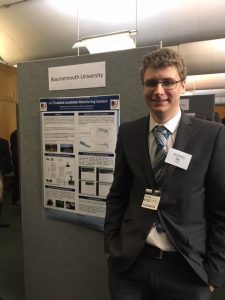
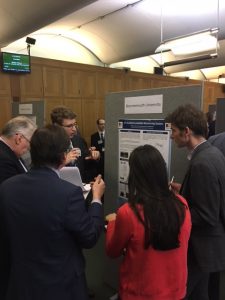
Mimi Simpson, a BA (Hons) Advertising student in Faculty of Media & Communication, shared her research on how Generation Y mothers participate in Online Mothering Communities (OMCs) as a Platform for Breastfeeding Information and Support.
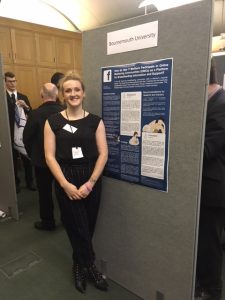
‘My research developed from UNICEF declaring that improving breastfeeding rates was a national priority. As an Advertising student, I was interested in the influence that Facebook communities have on supporting and advising breastfeeding mothers. The research concluded that participating mothers have a more successful breastfeeding experience when supported by life-experienced mothers in social media communities’. Mimi also expressed the benefit of taking part in the event on the day ‘Speaking to other academics at Posters in Parliament helped me in considering future lines of research, specifically in the role social media communities play in supporting other medical areas and needs’.
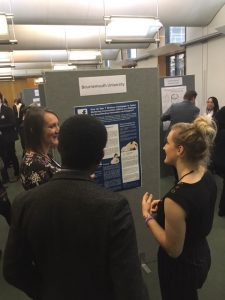
Both Matt and Mimi will be presenting their research at the upcoming SURE 2019 conference in Fusion Building on March 20th. More information about BU’s undergraduate research conference can be found on the SURE website. Staff and students are welcome to take in the conference March 20th building and can book free tickets via Eventbrite.
Posters in Parliament is the prescursor event to the national BCUR 2019 conference, this year being held at University of South Wales, where a number of BU undergrads across all faculties are due to present and share their leading research.








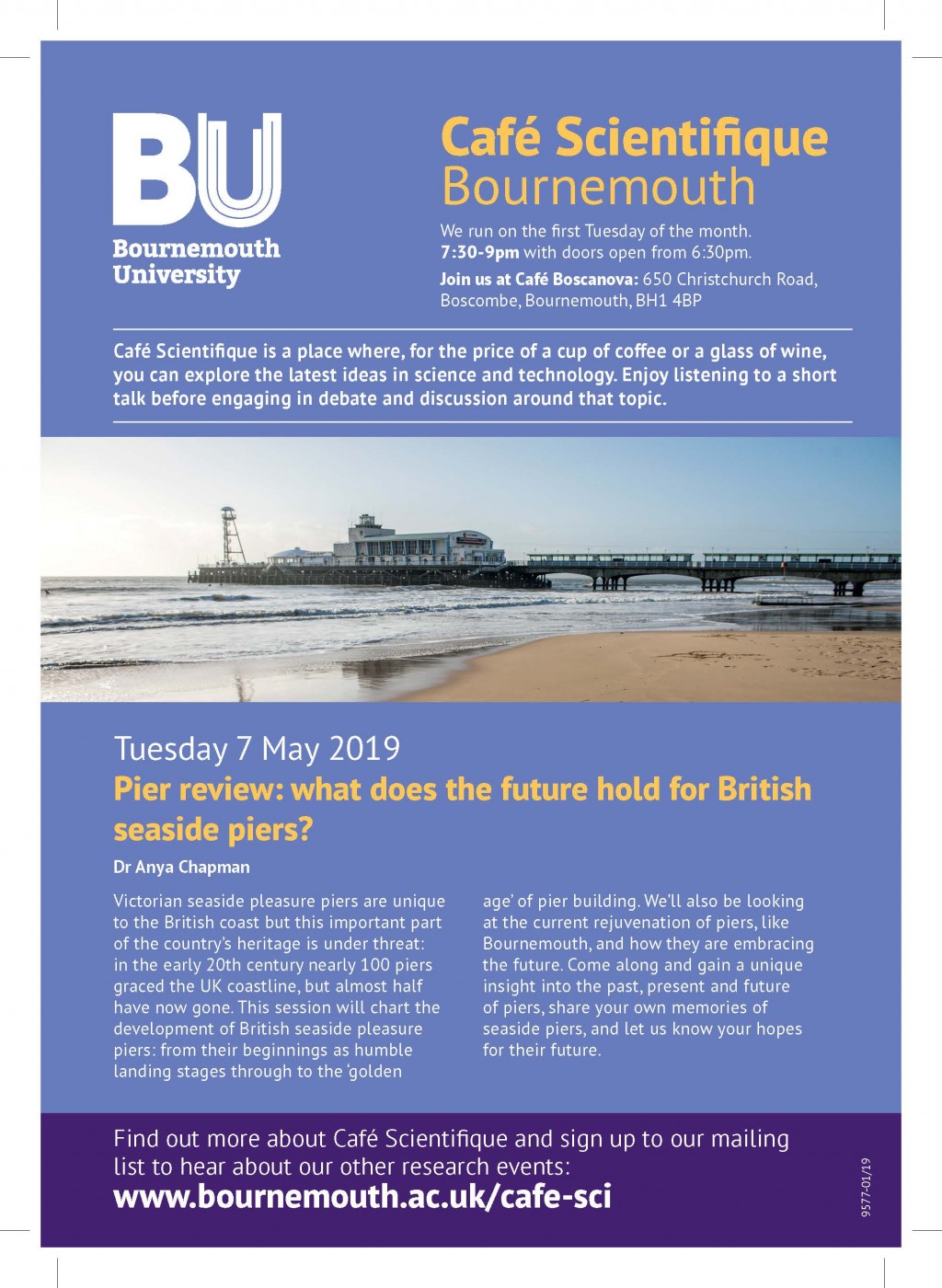



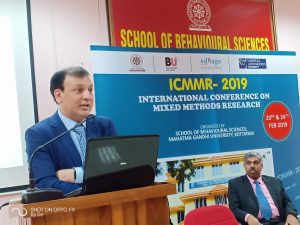
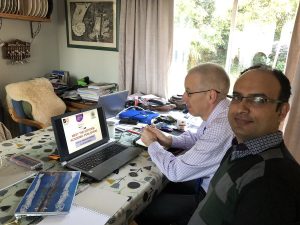













 April’s Café Scientifique – Should we help machines understand and respond to our emotions?
April’s Café Scientifique – Should we help machines understand and respond to our emotions? Postgraduate Research Experience Survey (PRES) 2024 – 2 WEEKS LEFT
Postgraduate Research Experience Survey (PRES) 2024 – 2 WEEKS LEFT Working with The Conversation: online training session – Wednesday 8th May
Working with The Conversation: online training session – Wednesday 8th May Apply for up to £1,000 to deliver an event and take part in a national festival of public engagement with research
Apply for up to £1,000 to deliver an event and take part in a national festival of public engagement with research MSCA Postdoctoral Fellowships 2024
MSCA Postdoctoral Fellowships 2024 Horizon Europe News – December 2023
Horizon Europe News – December 2023